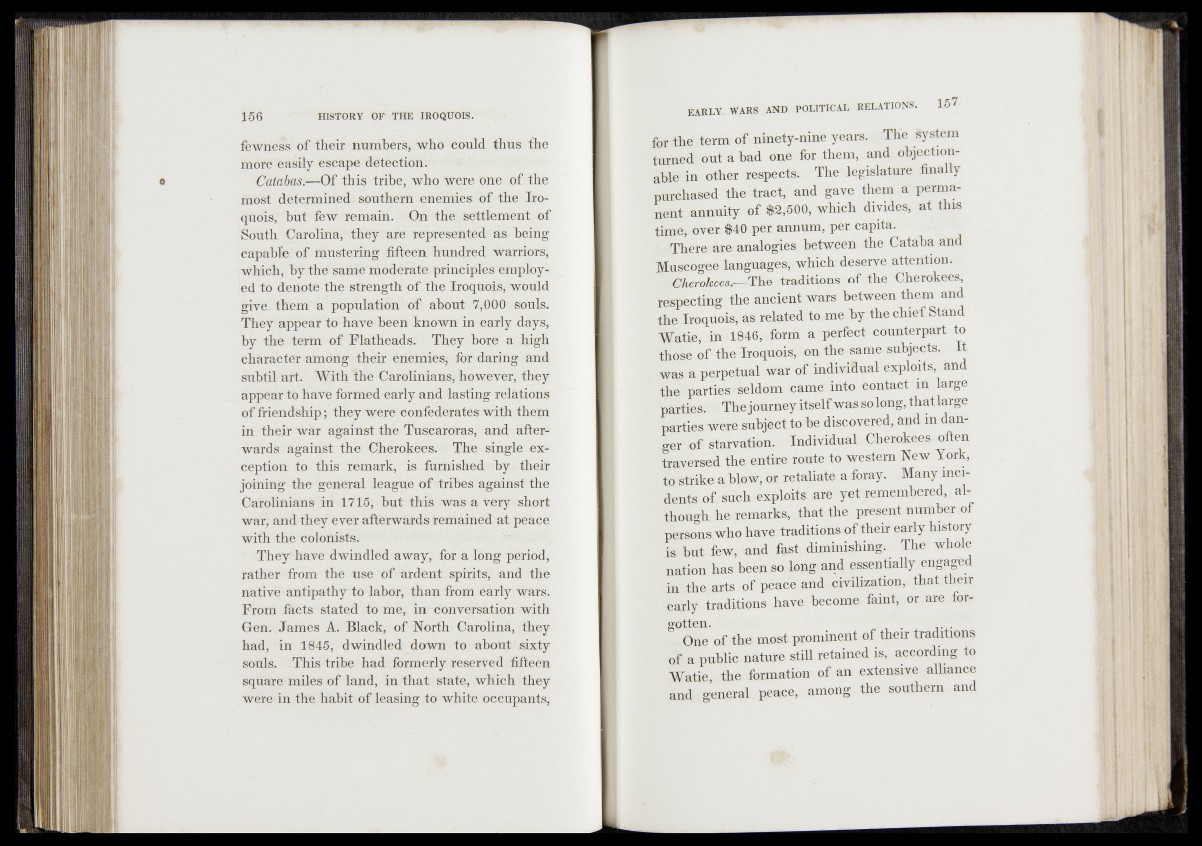
fewness of their numbers, who could thus the
more easily escape detèctioiL te
Caiabas.—Oï this tribe, who were ope of the
most determined southern enemies of the Iroquois,
but few remain. On the settlement of
South Carolina, they are represented as being
capable of mustering fifteen hundred warriors,
which, by the same moderate principles employed
to denote-the strength of the Iroquois, would
MY’e. them a population. Of about 7,000 souls.
They appear to have been known in early days*
by the term of Flathead«. They bore a high
character among their enemies, for daring and
subtil art. With the Carolinians, however; they
appear to have formed early and lasting relations
of l&iendship; they were confederates with them
in their war against the Tuscaroras, and afterwards
against the Cherokees,-' The single exception
to this remark, is furnished by*-their
joining the general league of tribes, against the
Carolinians in 1715, but this was a Very short
war, and théy^evèr afterwards remained at peace
with thë colonists.
They' have dwindled away, for a long period,
rather*from thé Use of ardent spirits, andftbe
native antipathy to labor, than from early wars.
From facts stated to me, in conversation with
Gen. James A. Black, of North Carolina, they
had, in 1845, dwindled down to about sixty
souls. This tribe had formerly reserved fifteen
square miles of land, in that state, which they
were in the. habit of leasing to white occupants,
for "the. term of ninety-nine years. The System
turned out a had one for them, and objectionable
in other respects. The legislature finally
purchased the tract, and gave them d perman
e n t annuity of #2#00, ydfich divides, at this
time,-over $40 per annum, per capita.
There are analogies between the Cataba and
JVEuscogee languages, which deserve attention.
. €herokees.—The traditions of the Cherokees,
respecting the ancient war? between them and
the Iroquois, as related to me by the chief Stand
Watie, in 1846, form a perfect counterpart to
those of the Iroquois, on the same subjects. It
a perpetual war of individual exploits, and
the parties seldom came into contact in large
parties..' The journey itself was so long, that large
parties jvere subject to he discovered, and in danger
Of starvation. Individual Cherokees often
traversed the entire route to western New York,
to strike a blow, or Retaliate, a foray. Many incidents
of such exploits are yet remembered, although
he remarks, that the present number of
persons who have traditions of their early history
is but few, and fast diminishing. The whole
nation has been so long and essentially engaged
in the fttts of peace and civilization, that their
early traditions have become faint, or are forgotten.
. .
One of t h e most prominent of their traditions
Qf a public nature still retained is, according to
yYatie, the formation of an extensive alliance
and general peace, among the southern and